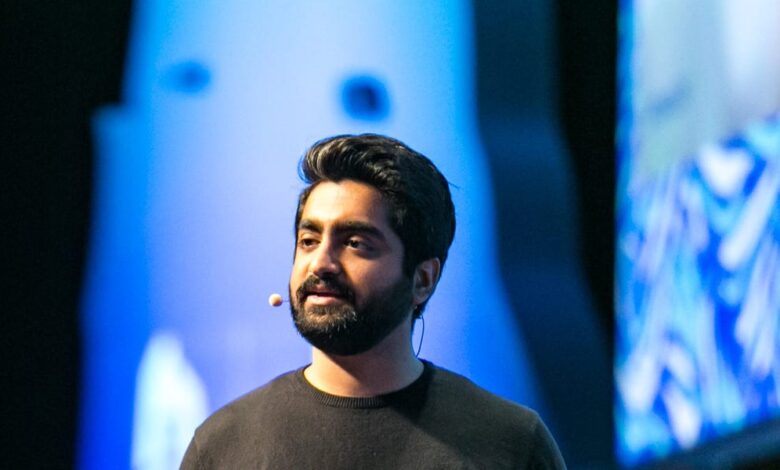The Résumé That Got an Indian Engineer His First Job in Europe

- Sahil Dua taught himself the basics of software engineering while at university.
- Dua shares the résumé that helped him land his first job, a software development role in Amsterdam.
- He also emphasizes the importance of gaining visibility both in-person and online.
Sahil Dua’s journey into software and computer science began with a robotics competition.
In his first year of college in Delhi, where he studied electronics engineering, he started building some robots with friends. He soon realized he was more passionate about software than hardware, which led him to learn outside the classroom.
“Everything I learned in computer science is actually what I learned in my own time on top of studying for my electronics degree as well,” he told Business Insider.
Over the next three years of university, Dua taught himself coding and learned about different operating systems and networks. He applied those lessons at several tech internships and by cofounding a startup.
While students in India often seek job placements through their university, Dua proactively applied to jobs on his own as well, including opportunities overseas.
This is the résumé he used to land a software development graduate program role at Booking.com in Amsterdam right after college. Later, he used an updated version of that résumé — with the same template — for a software engineering role at Google, where he’s worked for more than four years.
Dua is currently a senior machine learning engineer at Google’s Zurich office.
BI has verified his employment history.
Sahil Dua
Looking back on the document, Dua said two things on his résumé helped in his job search. He would also change two things if he were a junior developer now.
-
Emphasize projects: Dedicating a section to projects and listing them out helped give interviewers starting points for discussion before he had a lot of job experience, he said. “Those projects would make me stand out because they demonstrated that I had practical experience, even when I was looking for a job straight out of university.” Dua said he applies the same principle to his LinkedIn profile, where he lists 26 projects.
-
Use unique formats: Dua wanted a template to solve two purposes. First, he found that a single-column résumé would not give him enough space to list everything. “The second reason was that I wanted my résumé to stand out” but also not be so “extreme that it seems weird to look at,” he said about his two-column template. He found this template on GitHub.
While he would make a couple of tweaks, such as removing links to his personal Twitter account and decreasing emphasis on education, there are two other ways he would enhance his profile now.
-
Build a personal brand: Dua said that he would revamp the “achievements” section of his résumé to include projects such as giving talks at technical conferences. Speaking at events like Python-focused conference PyCon gave him visibility within the industry, even in the early years of his career, and led to the opportunity to write a book.
-
Make yourself searchable online: Dua adds links to his online profiles on his résumé and takes steps to build more online visibility. “Anytime I’m doing any courses online, I make sure that I post it on LinkedIn as a certificate,” he said about learning new skills like machine learning. This ensures that “my profile is getting clicks or it’s getting up there when people are searching for those fields.” On LinkedIn, he uses his current job section to add more about his role and achievements than his one-page résumé allows.
Career experts recommend Dua’s approach to enhancing LinkedIn profiles to be more search-friendly.
Recruiters actively seek candidates using keywords, said Nick Shah, founder of Peterson Technology Partners, a 26-year-old tech staffing agency based in Park Ridge, Illinois.
“Job seekers should research the keywords that are relevant to their industry and incorporate them into their profile to increase their chances of appearing in search results and catching the attention of recruiters,” Shah previously told BI.
Shah said job seekers should clearly define their roles in LinkedIn’s work experience section and provide examples and achievements, much like what Dua does on his profile.
Do you work in tech, finance, or consulting and have a story to share about your personal résumé journey? Email this reporter at shubhangigoel@insider.com.





